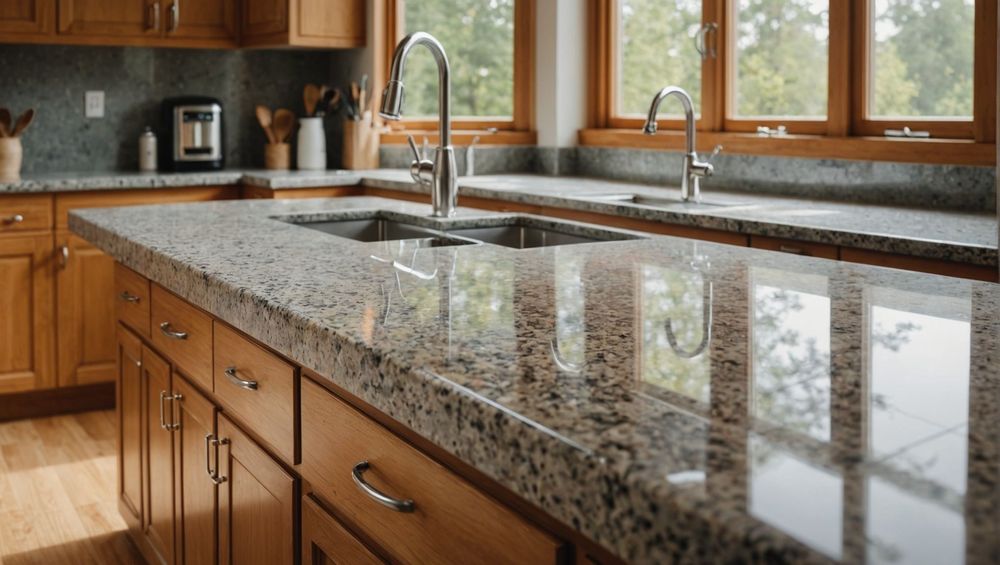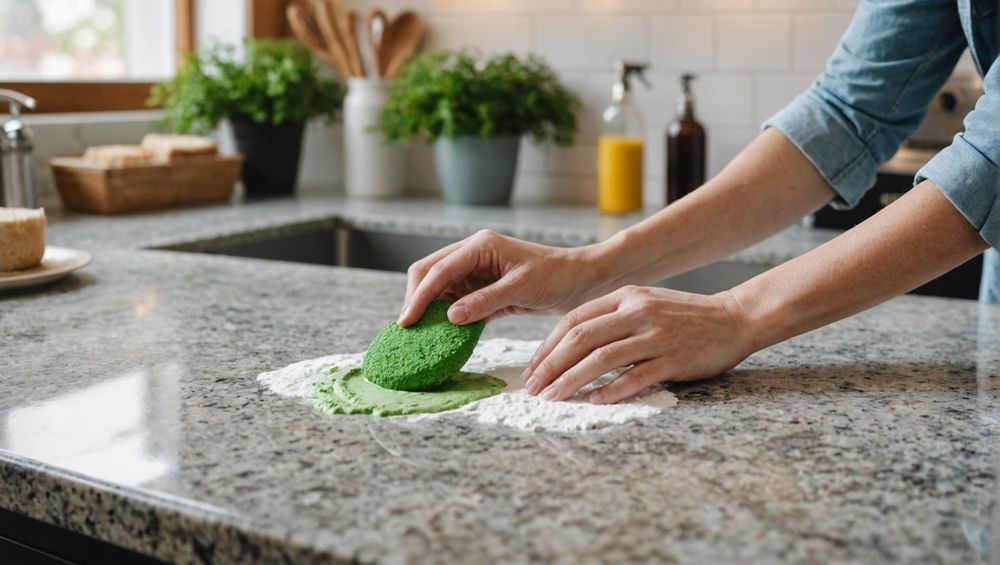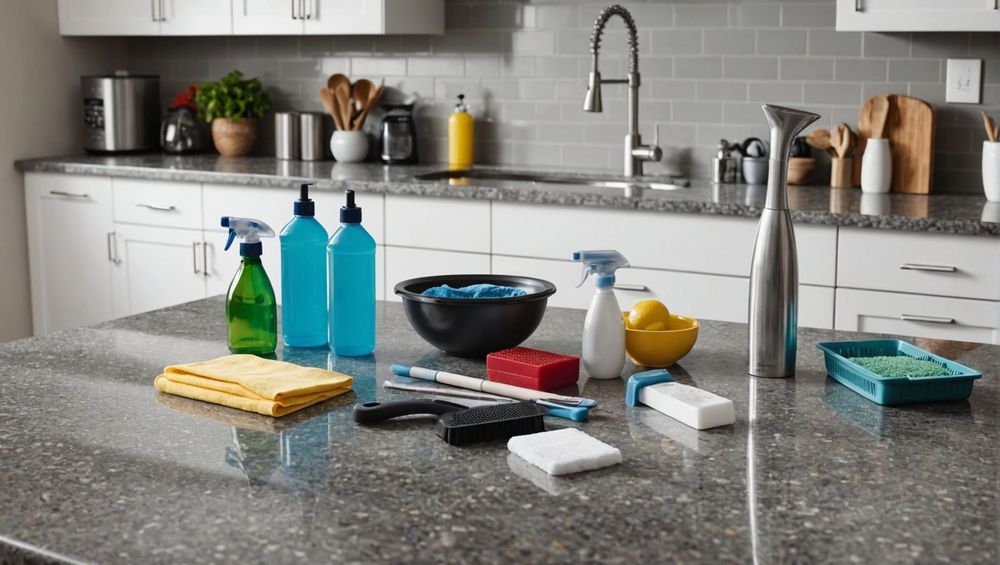Granite countertops are a popular choice in kitchens and bathrooms due to their beauty and durability. However, they can also be susceptible to stains, which can mar their elegant appearance. The right way to remove stains from granite involves understanding the type of stain, using appropriate cleaning methods, and applying preventive measures. In this article, we will explore effective techniques to restore the pristine condition of your granite surfaces, ensuring they look as good as new.
Understanding the Types of Stains

Before tackling any stain, it’s crucial to identify what type of stain you are dealing with. Different substances require varying treatment approaches. Common stains on granite surfaces include oil stains, water stains, and others. Here’s a brief overview of some typical stain types:
- Oil Stains: Often caused by cooking oils or greasy spills, these stains can penetrate the granite surface.
- Water Stains: These occur when water is left to sit on the countertop for an extended period, leading to unsightly marks.
- Food Stains: Ingredients like fruit juice, wine, or coffee can leave behind pigment stains if not promptly cleaned.
- Rust Stains: Frequently seen in areas where metal items have been placed, rust stains can indicate underlying issues.
Gather the Right Cleaning Supplies
Once you’ve identified the stain type, gather the appropriate cleaning supplies before beginning the removal process. These tools and items will help you effectively clean and restore your granite countertops:
- pH-balanced cleaner specifically for stone surfaces
- Soft cloths and sponges for application
- Baking soda for oil stains
- Hydrogen peroxide for food and rust stains
- Olive oil or mineral oil for polishing
Having these items ready will make the cleaning process more efficient, allowing you to tackle stains more effectively. Using the wrong cleaners, such as those containing acids or bleach, can damage the granite, so it’s essential to stick with products designed for stone care.
Step-by-Step Stain Removal Process

Here’s a simple, effective process for tackling common stains on granite countertops:
- For Oil Stains: Mix baking soda with water to create a thick paste. Apply it directly to the stain, cover with plastic wrap, and let it sit for 24 hours before rinsing.
- For Water Stains: Use a pH-balanced stone cleaner and a soft cloth to gently wipe the area. Avoid harsh scrubbing, which can scratch the surface.
- For Food Stains: Soak a soft cloth with hydrogen peroxide, apply it to the stain, and leave it for 5-10 minutes, then wipe clean.
- For Rust Stains: Apply a rust remover made for stone surfaces with a cloth and follow the manufacturer’s instructions.
Always remember to test any cleaning solution on an inconspicuous area of the granite to ensure it won’t cause discoloration or damage.
Preventing Future Stains
Prevention is always better than cure, especially when it comes to maintaining the look of your granite countertops. Here are several tips to minimize the risk of staining:
- Seal Your Granite: Regularly sealing your granite countertops will create a protective barrier against stains.
- Clean Spills Immediately: Quick action is necessary to prevent stains; wipe spills promptly with a soft cloth.
- Use Cutting Boards: Always use cutting boards when preparing food to avoid scratches and reduce stains.
- Avoid Harsh Chemicals: Refrain from using acidic cleaners, as they can degrade the sealant and stain the stone.
By following these preventive measures, you’ll keep your granite countertops looking stunning for years to come.
Conclusion
Removing stains from granite countertops doesn’t have to be a daunting task. By identifying the type of stain and using the proper cleaning methods, you can effectively restore the beauty and integrity of your surfaces. Remember to take preventive steps to protect your investment and ensure your countertops maintain their elegant appearance. With a little effort and the right strategies, your granite will continue to be a gorgeous centerpiece in your home.
FAQ
1. Can I use bleach on my granite countertops?
No, bleach can damage the granite and its sealant. It’s best to use pH-balanced cleaners specifically designed for stone surfaces.
2. How often should I seal my granite countertops?
It’s recommended to seal granite countertops every 6 to 12 months, depending on usage and the type of granite.
3. Is it necessary to use coasters on granite countertops?
Yes, using coasters can help prevent ring stains from drinks and protect the surface from scratches and heat damage.
4. What should I do if my stain does not come out?
If the stain persists even after multiple attempts, consider consulting a professional stone care expert for advanced treatments.
5. Can I use vinegar to clean granite stains?
No, vinegar is acidic and can damage the stone. Stick to pH-balanced cleaners for granite maintenance.
